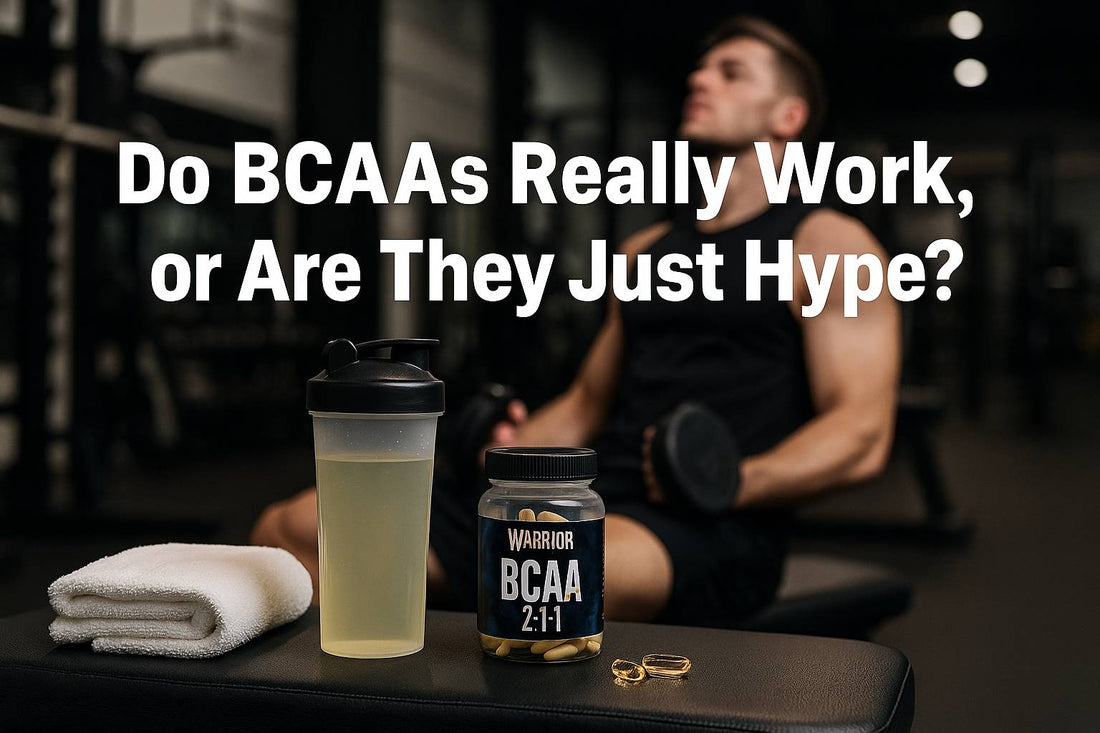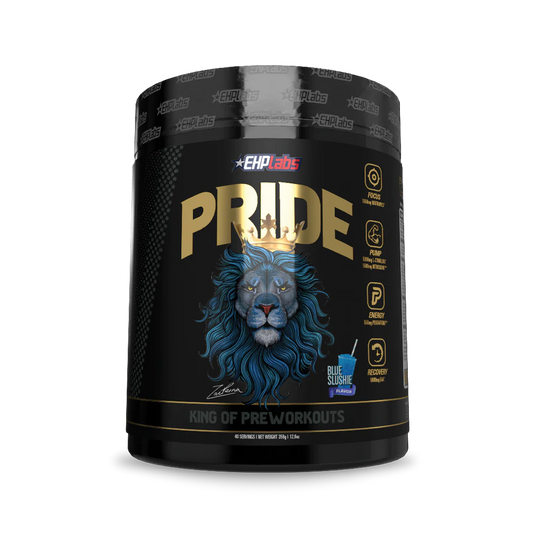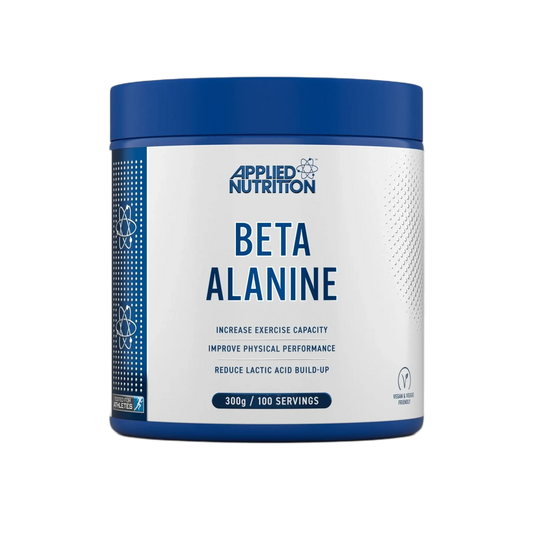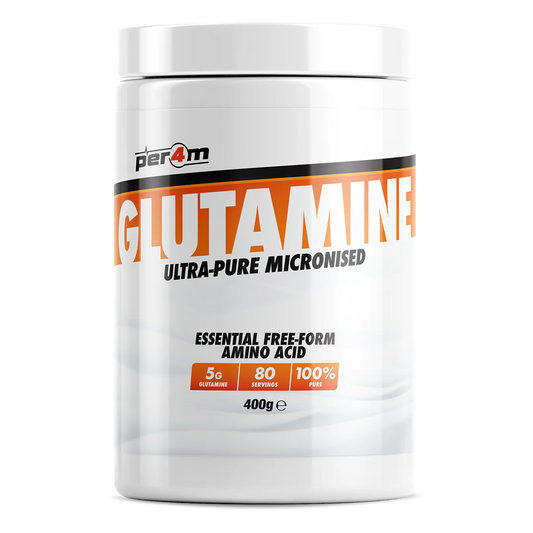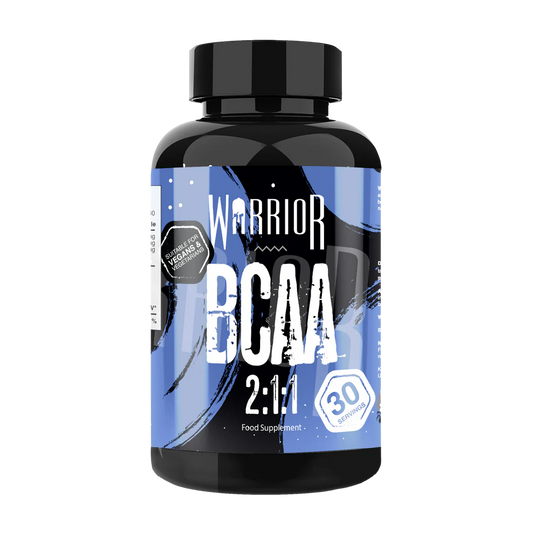Introduction: The BCAA Buzz
For years, BCAAs have dominated gym bags and supplement stacks. Marketed as the key to faster recovery, reduced soreness, and even muscle growth, branched‑chain amino acids have a reputation as a must‑have for lifters and athletes. But in 2025, with so many supplements on the market — from whey protein to full amino blends — the question remains: do BCAAs really work, or are they just hype?
1) What Exactly Are BCAAs?
BCAAs — short for branched‑chain amino acids — are three essential amino acids: leucine, isoleucine, and valine. They’re called “essential” because your body can’t make them; you have to get them from food or supplements.
Leucine is the star player, known for triggering muscle protein synthesis. Isoleucine helps with energy and glucose uptake, while valine supports recovery and muscle repair. Together, they form the backbone of many recovery‑focused supplements.
While a balanced diet does provide BCAAs — especially if you eat a lot of protein from meat, eggs, or whey — concentrated supplementation can give you an edge, particularly during intense training blocks, cutting phases, or fasted workouts.
💡 MyProtein Impact BCAA 2:1:1 is a go‑to choice here, with the research‑backed ratio of leucine to isoleucine and valine. It’s designed to provide a rapid hit of amino acids exactly when your body needs them most.
2) BCAAs vs Protein Powder: Do You Really Need Both?
Here’s where the debate kicks off. Whey protein already contains BCAAs, so why take extra?
The key difference is speed and timing. Protein shakes need to be digested, broken down, and absorbed. BCAA supplements skip that step — they’re free‑form amino acids, absorbed much faster. This makes them particularly useful when training fasted, between meals, or during long workouts when you need fuel without heaviness.
Protein is your foundation — it provides all the essential amino acids your body needs. BCAAs, on the other hand, are more like the specialist team you call in for high‑demand situations. Think of whey as the bricks for muscle growth, and BCAAs as the scaffolding that helps hold the structure together when stress is highest.
If your training style involves early‑morning fasted cardio, long sessions, or a calorie deficit, a scoop of BCAAs during your workout can make a noticeable difference in both performance and recovery.

3) Do BCAAs Actually Help With Recovery?
Recovery is where the BCAA hype meets the science. Numerous studies show that BCAAs, particularly leucine, can reduce muscle breakdown during and after exercise. They don’t rebuild muscle on their own — you’ll still need a solid protein intake for that — but they do help preserve muscle mass and reduce soreness.
For weightlifters and athletes in cutting phases, this is a game‑changer. When calories are low and recovery is stretched thin, BCAAs act like a safety net, helping you hold onto muscle while still training hard.
Paired with other amino acid–based supplements like Applied Nutrition Beta‑Alanine or Per4m Glutamine, BCAAs become part of a complete recovery strategy that covers energy, endurance, and repair.
4) When Are BCAAs Worth It?
Not everyone needs BCAAs daily. If you’re eating a high‑protein diet and training moderately, you might get enough through food and whey protein.
But there are specific scenarios where they shine:
-
Fasted training: Prevents muscle breakdown when glycogen is low.
-
Cutting phases: Helps preserve lean muscle while calories are restricted.
-
Long or intense workouts: Provides energy without slowing digestion.
-
Low protein diets: Fills the gaps if your intake isn’t optimal.
That’s why many gym‑goers still keep them in rotation, despite the debates.
📌 And that’s the end of Part 1!
✅ Covered so far:
-
What BCAAs are and how they work
-
The debate: protein vs BCAA supplementation
-
Their role in recovery and preservation of muscle
-
Scenarios where they offer the most benefit
🔜 In Part 2, we’ll dig deeper:
- Do BCAAs stop muscle breakdown during fasting?
- Are BCAAs better before or after workouts?
- Can you build muscle without BCAAs?
- BCAAs vs EAAs: which should you choose?
- FAQ’s
-
Conclusion
Do BCAAs Really Work, or Are They Just Hype?
5) Do BCAAs Stop Muscle Breakdown During Fasting?
One of the most popular times to use BCAAs is during fasted training. Without fuel from carbs or protein, your body can slip into a catabolic state — essentially breaking down muscle tissue for energy.
BCAAs, especially leucine, provide a fast‑acting amino acid supply that helps protect muscle mass during these sessions. Unlike a full protein shake, they don’t break your fast in the same way, making them a favourite for early‑morning cardio or lifters using intermittent fasting.
Pairing BCAAs with Per4m Glutamine further supports recovery by helping to replenish amino acid stores and improve gut health — a combination many gym‑goers find keeps performance high even in a calorie deficit.

6) Are BCAAs Better Before or After a Workout?
The timing debate is fierce, but the answer may surprise you: both.
Taking BCAAs before training primes your muscles with amino acids, reducing breakdown as you train. Taking them after training can continue to support recovery, particularly if your next protein‑rich meal is still a while away.
If you only want to choose one, most evidence supports intra‑workout or pre‑workout use for best results. That’s when your muscles are under the most stress and need immediate support.
For those who already use pre‑workouts, stacking a BCAA drink with a formula like EHP Labs PRIDE Pre‑Workout offers both energy and muscle‑protective benefits — ideal for longer or heavier training sessions.
7) Can You Build Muscle Without BCAAs?
Yes — but there’s nuance. You can absolutely build muscle on a high‑protein diet alone, especially if you’re hitting your daily macro targets. But that doesn’t mean BCAAs don’t add value.
Think of them as a performance enhancer rather than a foundation. They’re not replacing protein; they’re making sure your training and recovery are supported in situations where whole food and whey might not be enough.
For example, if you’re dieting on reduced calories, training fasted, or pushing endurance workouts, BCAAs give your body a buffer that can keep progress steady instead of stalling.
8) BCAAs vs EAAs: Which Should You Choose?
Essential amino acids (EAAs) have grown in popularity because they include all nine essential aminos, not just the three in BCAAs. On paper, that sounds better — and in some cases, it is.
But for gym‑goers whose main focus is muscle preservation and recovery around workouts, BCAAs still hold their own. They’re faster absorbed, lighter on digestion, and directly fuel muscle protein synthesis.
A smart approach? Use MyProtein Impact BCAA 2:1:1 during training for rapid muscle support, and rely on a full protein source like whey for your complete amino acid profile. It’s a best‑of‑both‑worlds strategy that covers both speed and completeness.

9) Do You Need BCAAs If You Take Whey Protein?
This is the question most people Google — and the answer depends on your training style.
If you’re eating a protein‑rich diet with whey shakes after workouts, you may not “need” BCAAs for muscle growth. But if you want the performance edge during training itself — preventing breakdown, reducing soreness, and staying sharp in a deficit — then yes, they’re worth considering.
Many serious lifters combine whey with a BCAA drink like Warrior BCAA 2:1:1 Capsules for convenience. It’s a cost‑effective way to keep amino levels elevated without carrying a full shake everywhere.
🧠 FAQ: BCAAs and Gym Performance
1. Do BCAAs actually help with recovery?
Yes. They don’t replace protein but they reduce muscle breakdown and soreness, making recovery smoother.
2. Are BCAAs better before or after a workout?
Both work — but pre‑ or intra‑workout gives the most noticeable benefits.
3. Can you build muscle without BCAAs?
Yes — but they add a protective layer during fasting, cutting, or long sessions.
4. Do BCAAs stop muscle breakdown during fasting?
They help minimise it by quickly supplying leucine and other amino acids.
5. BCAA supplements vs EAAs: which is better?
EAAs are more complete, but BCAAs are faster absorbed and directly support muscle protein synthesis.
6. Do you need BCAAs if you take whey protein?
Not always — but they give extra support during workouts when whey isn’t practical.
Conclusion: Hype or Helper?
So, do BCAAs really work, or are they just hype? The answer lies somewhere in between. If you’re training casually and already hitting protein targets, you may not notice much difference. But for serious gym‑goers — especially those training fasted, cutting calories, or doing long, intense sessions — BCAAs can provide a real edge.
In 2025, they’re not a fad; they’re a targeted tool. Used smartly, alongside whey protein, creatine, and glutamine, they can keep you training harder, recovering faster, and holding onto the muscle you’ve worked for.

